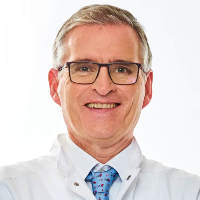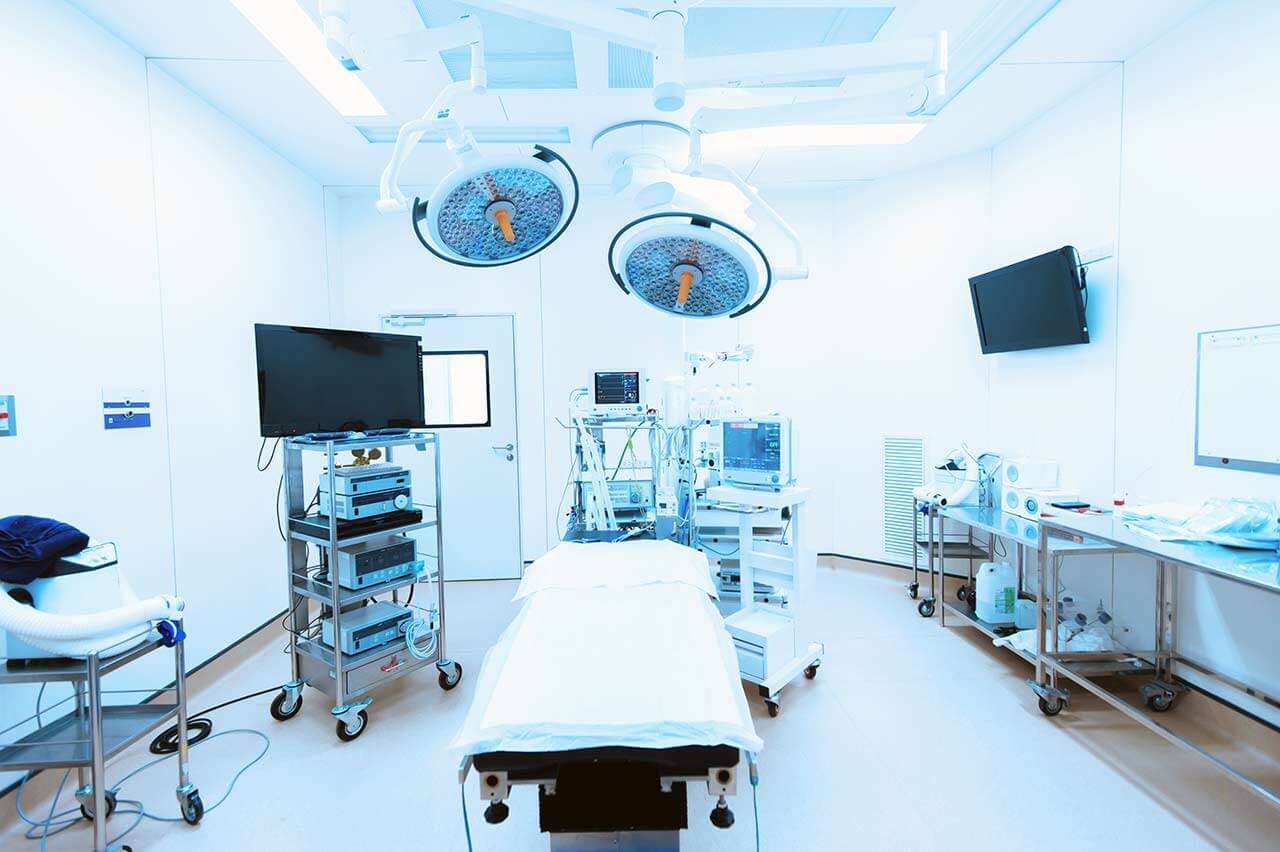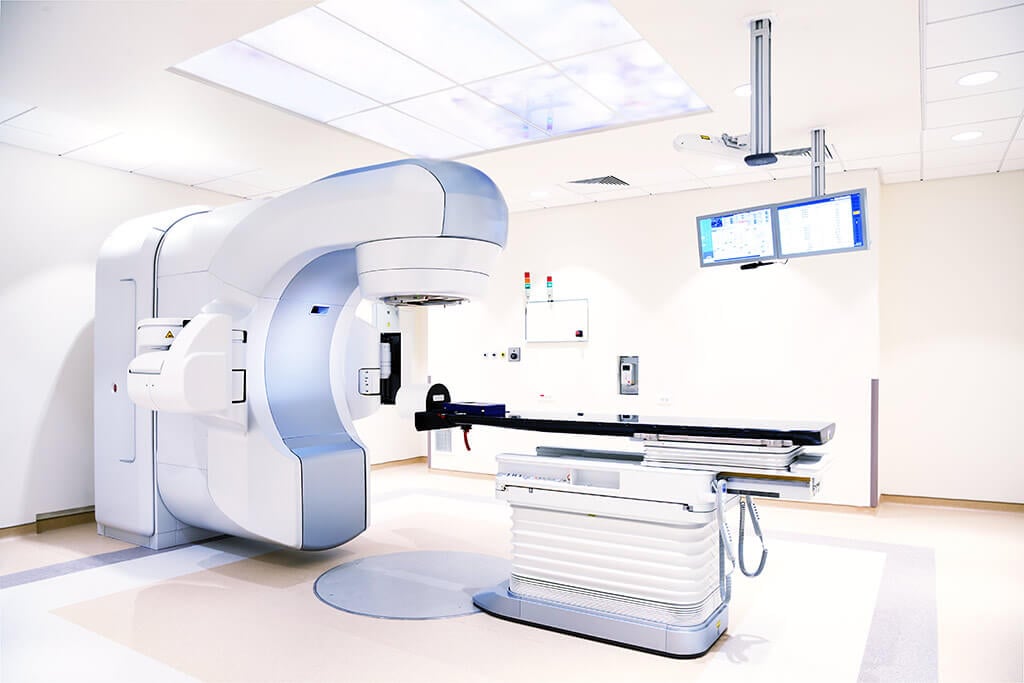
The program includes:
- Initial presentation in the clinic
- clinical history taking
- physical examination
- review of medical records
- laboratory tests:
- complete blood count
- indicators of inflammation (CRP, ESR)
- otorhinolaryngological examination:
- pharyngoscopy
- laryngoscopy
- ultrasound
- nursing services
- consultation of related specialists
- consultation of the chief physician and all leading experts
- development of individual treatment plan
- written statement
Required documents
- Medical records
Service
You may also book:
 BookingHealth Price from:
BookingHealth Price from:
About the department
The Department of Adult and Pediatric Otolaryngology, Head and Neck Surgery, Facial Plastic Surgery at the Catholic Clinic Koblenz-Montabaur offers the full range of medical services in the areas of its specialization. The primary focuses of the department's work include the diagnostics and treatment of hearing loss, diseases of the external, middle, and inner ear, and pathologies of the nose, paranasal sinuses, and skull base. The department includes a specialized Head and Neck Cancer Center, certified in accordance with the requirements of the German Society for Haematology and Medical Oncology (DGHO). A special area of clinical practice at the medical facility is cochlear implantation, which is indicated for patients with complex forms of hearing loss. The department also performs interventions for the implantation of partially and fully implantable hearing aids. The department admits not only adults but also young patients with otolaryngologic diseases. The department's doctors have effective conservative and surgical techniques in their arsenal. The health of patients is in the safe hands of a competent team of doctors, consisting of otolaryngologists, audiologists, pediatric audiologists, and speech therapists. The Head Physician of the department is Prof. Dr. med. Jan Maurer.
The department demonstrates excellent results in cochlear implantation, which is carried out at a specialized center. Cochlear implantation is an innovative treatment for adults and young patients with severe sensorineural hearing loss. The essence of the minimally invasive intervention is the implantation of a special electronic device (a cochlear implant), consisting of an internal and external part. The operation is performed under general anesthesia and lasts about 2 hours. Following the operation, the department's patients undergo rehabilitation, including setting up the device and adapting its speech processor so that a person can hear sounds and distinguish them. Rehabilitation is carried out on an outpatient basis.
The department also successfully performs surgical interventions to improve hearing, such as stapedoplasty and tympanoplasty. The first version of the operation involves the replacement of the stapes with a prosthesis using microsurgical techniques, which allows for the restoration of hearing in a patient with otosclerosis. Tympanoplasty is a surgical procedure performed to repair a damaged eardrum. The intervention is performed under general anesthesia; a surgical approach is provided through the external auditory meatus using a special microscope or through a small skin incision in the postauricular area.
An integral part of the work of the department's otolaryngologists is the treatment of head and neck tumors. For this purpose, a certified center operates here, which is certified by the German Society for Haematology and Medical Oncology (DGHO). Patients are treated by experienced doctors who have saved thousands of lives. Interdisciplinary tumor boards are regularly held here to develop an optimal treatment regimen, in which otolaryngologists, oncologists, radiation therapists, radiologists, and other experts take part. Therapy is selected individually. As a rule, the treatment is based on tumor resection surgery. Minimally invasive techniques are preferred whenever possible. After extensive resections,the department's patients are offered reconstructive plastic surgery. In many cases, the treatment process is quite complicated, so patients receive competent psychological care.
It should be noted that the use of advanced equipment, including endoscopes, microscopes, laser systems, intraoperative neuromonitoring devices, and intraoperative navigation systems, contributes to the outstanding success of surgical treatment. All these devices allow doctors to provide patients with the most sparing and safe surgical treatment.
The department's range of diagnostic services includes:
- Diagnostic tests for hearing loss
- Tone and speech audiometry
- Conditioned play audiometry
- Otoacoustic emission test
- Tympanometry
- Electrocochleography
- Brainstem auditory evoked response
- Audiometry with recording of auditory evoked potentials
- Hearing aid testing
- Diagnostic tests for balance disorders
- Balance assessment test
- Video and electronystagmography
- Functional testing of the otolith apparatus
- Vestibular evoked myogenic potential
- Halmagyi test
- Posturography
- Diagnostic tests for cranial nerve dysfunction
- Electromyography (facial nerve and recurrent laryngeal nerve)
- Smell testing
- Taste bud testing
- Diagnostic tests for oral, pharyngeal, and laryngeal diseases
- Flexible and rigid endoscopy
- Ultrasound sonography in modes A and B
- Video laryngeal stroboscopy
- Assessment of the vocal cord state
- Assessment of the swallowing act
- Diagnostic tests for respiratory disorders
- Sleep screening in a special laboratory (for snoring and obstructive sleep apnea)
- Rhinomanometry (measurement of air resistance when breathing through the nose)
- Acoustic rhinometry
- Allergic tests
- Imaging tests
- Digital volume tomography
- Computed tomography (CT)
- Magnetic resonance imaging (MRI)
- Endoscopic examinations
- Endoscopy of the upper respiratory tract and upper gastrointestinal tract
- Other diagnostic methods
The department offers the following treatment methods:
- Conservative treatment
- Drug therapy
- Chemotherapy, antibody therapy, and other treatment methods for head and neck cancers
- Surgical treatment
- Microsurgical treatment of nasal and paranasal sinus diseases
- Nasal septum surgery
- Turbinate surgery
- Endonasal sinus surgery
- Functional endoscopic paranasal sinus surgery
- Microscopic endoscopic paranasal sinus operations
- Surgical debridement for chronic diseases of the middle and inner ear (for example, inflammation, cholesteatoma, or otosclerosis) and surgical treatment for hearing loss and dizziness
- Hearing improvement surgery: stapedoplasty and tympanoplasty
- Cochlear implantation
- Placement of partially and fully implantable hearing systems (for example, BAHA)
- Saccotomy, vestibular neurectomy, and sacculotomy (for example, for dizziness and Meniere's disease)
- Injection of drugs into the tympanic cavity (for example, cortisone or gentamicin)
- Skull base surgery
- Surgery for benign tumors (for example, glomus tumors, acoustic neuromas, or juvenile nasopharyngeal angiofibromas)
- Surgery for malignant tumors (for example, esthesioneuroblastoma or chordoma)
- Surgery for inflammatory diseases (for example, malignant external otitis or osteomyelitis)
- Surgery for skull base injuries (for example, skull base reconstruction or dural plastic surgery for liquorrhea)
- Surgery for benign and malignant tumors in the face, head, and neck
- Surgery for face and neck skin tumors
- Surgery for mouth, tongue, and throat tumors
- Surgery for laryngeal tumors
- Surgery for nasal and paranasal sinus tumors
- Surgery for thyroid tumors
- Facial plastic surgery
- Plastic reconstructive surgery after head and neck tumor resection – microsurgical tissue transfer: muscle flaps, skin flaps, microvascular anastomoses, and nerve ending reconstruction
- Aesthetic and reconstructive plastic surgery on the face, head, and neck
- Otoplasty
- Septorhinoplasty
- Blepharoplasty
- Eyebrow lift
- Scar revision
- Reconstructive surgery after accidents with the plastic repair of soft tissues, skull bones, upper respiratory tract, and upper digestive tract
- Mediastinoscopic surgery
- Surgical treatment of obstructive sleep apnea and snoring
- Radiofrequency diathermy
- Uvulopalatopharyngoplasty
- Orbital decompression for endocrine ophthalmopathy
- Microsurgical treatment of nasal and paranasal sinus diseases
- Other treatment methods
Curriculum vitae
Prof. Dr. med. Jan Maurer is the Head of the Department of Adult and Pediatric Otolaryngology, Head and Neck Surgery, Facial Plastic Surgery at the Catholic Clinic Koblenz-Montabaur. The doctor is board certified in otolaryngology, plastic surgery, special otolaryngologic surgery, tumor drug therapy, and health economics.
Prof. Maurer has a wealth of clinical experience and is well known in professional medical circles. According to the Focus magazine, the doctor ranks among the top German specialists in the treatment of hearing loss and head and neck tumors, as well as performing otoplasty.
Photo of the doctor: (c) Katholisches Klinikum Koblenz - Montabaur
About hospital
The Catholic Clinic Koblenz-Montabaur is a modern medical facility with an excellent reputation in Germany and abroad. The medical center is an academic clinic of the University Hospital Mainz, which gives patients the opportunity to take advantage of scientific advances and innovative treatments. The clinic has the widest possibilities for providing effective medical care to patients with both common and especially complex and rare pathologies. In December 2017, the clinic was certified in accordance with DIN EN ISO 9001:2015 standards, and in 2020, it was successfully recertified, which is a confirmation of the high quality of medical service. The clinic has 20 departments with 17 highly specialized centers integrated into them. The bed fund of the medical facility includes 657 beds. More than 32,000 inpatients and about 133,000 outpatients receive medical care here annually.
Many medical specialties are available at the clinic, including general and abdominal surgery, bariatric surgery, vascular surgery, thoracic surgery, cardiology, pulmonology, gynecology, urology, neurology, orthopedics, traumatology, radiology, nuclear medicine, and others. Each of the medical specialties is represented by an experienced team of doctors and nursing staff who do their best to restore the patient's health. Doctors of various medical fields work in close cooperation, which allows for an interdisciplinary approach to solving health problems.
The pride of the clinic is the advanced technical base, which plays an important role in accurate examinations and effective treatment. For example, the operating rooms at the clinic are equipped in accordance with the current requirements of European medicine, due to which most surgical interventions are performed using sparing techniques, including laser surgery, video-assisted thoracoscopic surgery, arthroscopy, endovascular and hybrid surgical techniques, etc.
Despite the clinic's high-tech infrastructure, there is an atmosphere of understanding, sympathy, and respect for the patient. The medical team shows a humane attitude towards patients and takes care of their comfort throughout the entire period of treatment. Doctors devote enough time to personal communication with patients, which makes it possible to take into account their individual needs and wishes during the therapeutic process.
Photo: (с) depositphotos
Accommodation in hospital
Patients rooms
The patients of the Catholic Clinic Koblenz-Montabaur live in comfortable single and double rooms with light colors and modern design. Each patient room has an ensuite bathroom with a shower and a toilet. The furnishings of a standard patient room include an automatically adjustable bed, a bedside table, a wardrobe, a table and chairs for receiving visitors, and a TV. The telephone is provided for a fee. Wi-Fi is available upon request.
The clinic also offers enhanced comfort rooms corresponding to the level of a five-star hotel. These patient rooms are more spacious and have a sophisticated design. The bathroom of the enhanced comfort rooms has a set of toiletries, changeable towels, and a bathrobe.
Meals and Menus
The patient and the accompanying person can choose meals from three menus daily. If, for some reason, you do not eat all the foods, you will be offered an individual menu. Please inform the nursing staff of your dietary preferences prior to treatment.
Patients living in enhanced comfort rooms are additionally offered free soft drinks, coffee, tea, desserts, and fresh fruits.
Further details
Standard rooms include:
Religion
A Catholic liturgy is held every Sunday morning in the church at the clinic. The divine liturgy is also broadcast on the clinic's internal TV channel.
Accompanying person
Your accompanying person may stay with you in your patient room or at the hotel of your choice during the inpatient program.
Hotel
You may stay at the hotel of your choice during the outpatient program. Our managers will support you for selecting the best option.





